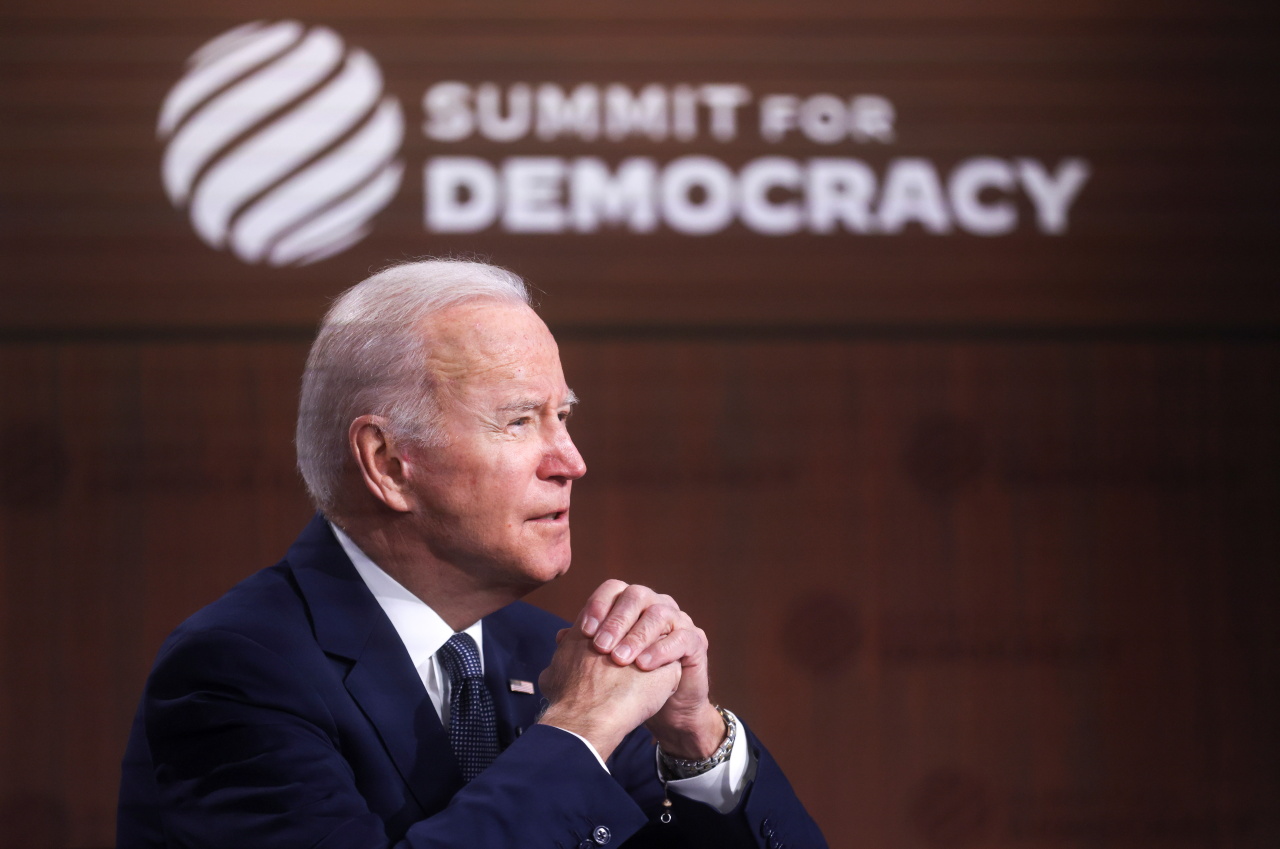New NK sanctions could put brakes on Seoul’s hopes of diplomacy with Pyongyang: experts
By Ahn Sung-miPublished : Dec. 12, 2021 - 16:28

The announcement of fresh US sanctions against North Korea might deal a blow to Seoul’s attempts to revive diplomacy with Pyongyang, experts said Sunday.
The US on Friday declared extensive sanctions and visa bans on human rights grounds against officials and entities in eight countries, including China, Russia, Myanmar, Bangladesh and North Korea. The action, coinciding with international Human Rights Day and a two-day summit on democracy led by Washington, is a tool to “draw attention to and promote accountability for human rights violations and abuses,” according to Secretary of State Antony Blinken, stressing the US is determined to put human rights at the center of the country’s foreign policy.
Washington has continuously called on Pyongyang to engage in dialogue over its nuclear and missile programs, but at the same time it has been adamant about holding Pyongyang accountable for human rights violations.
Marking the first new sanctions on North Korea under the administration of President Joe Biden, the Department of Treasury blacklisted North Korea’s Central Public Prosecutors Office for conducting unfair trials and using prison camps, as well as new Defense Minister Ri Yong-gil for his role as the former head of the Ministry of Social Security, which is in charge of the North’s prison system.
It also slapped sanctions on SEK Studio, a Pyongyang government-run animation studio with workers in North Korea and China, for exploiting low-cost labor and evading sanctions.
Also on the list are a Russian university, European Institute Justo, and its provost, Dmitriy Yurevich Soin, for sponsoring hundreds of student visas for construction workers from North Korea, saying the revenue generated from their labor could have been used to fund the North’s weapons of mass destruction.
As of press time, the North hasn’t made an official response. But considering precedents, the regime will likely fire back as it considers human rights a sensitive matter and sees accusations as a threat to the regime. Observers also raise concerns that the North could ratchet up the tension on the peninsula by carrying out provocations.
“The US had said it doesn’t have hostile policy toward the North and that it is open for talks without condition. But as Pyongyang considers sanctions an expression of Washington’s hostile policy, it will likely accuse the US of maintaining what it calls ‘double-dealing standards,’” said Yang Moo-jin, a professor at the University of North Korean Studies.
Park Won-gon, a North Korean studies professor at Ewha Womans University, said Washington’s latest sanctions had “added fuel to the fire” amid stalled diplomacy with Pyongyang and that the regime will likely take a firmer stance going forward.
“The North is very sensitive to human rights accusations and perceives them as a challenge to its system, considering North Korean leader Kim Jong-un is ultimately responsible for (human rights abuses),” said Park. He added that the regime will likely issue strongly worded statements or announce a tougher stance toward the US, possibly at a key party meeting it plans to hold later this month.
The potential for backlash raises alarm bells for South Korean President Moon Jae-in, who is making a last-ditch attempt to salvage the peace process on the Korean Peninsula before he leaves office in May.
Specifically, Moon has proposed declaring a formal end to the 1950-53 Korean War, which he believes could serve as a trust-building political gesture and a catalyst to rekindle talks with Pyongyang. The two Koreas are technically still at war, as the Korean War concluded not in a peace treaty but in an armistice agreement signed by the US-led United Nations Command, China and North Korea.
North Korea had called the idea of an end-of-war declaration “interesting and admirable” but said it would only be willing to discuss the proposal if the South ceased what the North called “hostile policies” toward Pyongyang.
“The North has been calling for Seoul and Washington to withdraw their hostile policy and ‘double-dealing standards’ as the precondition for an end-of war declaration,” said Park. “As Pyongyang regards accusations concerning human rights as ‘hostile,’ it is less likely the North will sign on to the declaration.”
Seoul’s proposal also faced difficulties last week, when Washington announced a diplomatic boycott of the upcoming Beijing Winter Olympics. Seoul has been eyeing the Beijing Games as a chance for progress toward an end-of-war declaration, together with the leaders of North Korea, the US and China. But without Washington’s participation, coupled with Pyongyang being suspended from the Beijing Games as punishment for skipping Tokyo Olympics this summer, a diplomatic breakthrough remains difficult to achieve.





![[Herald Interview] 'Amid aging population, Korea to invite more young professionals from overseas'](http://res.heraldm.com/phpwas/restmb_idxmake.php?idx=644&simg=/content/image/2024/04/24/20240424050844_0.jpg&u=20240424200058)












![[KH Explains] Korean shipbuilding stocks rally: Real growth or bubble?](http://res.heraldm.com/phpwas/restmb_idxmake.php?idx=652&simg=/content/image/2024/04/25/20240425050656_0.jpg&u=)

